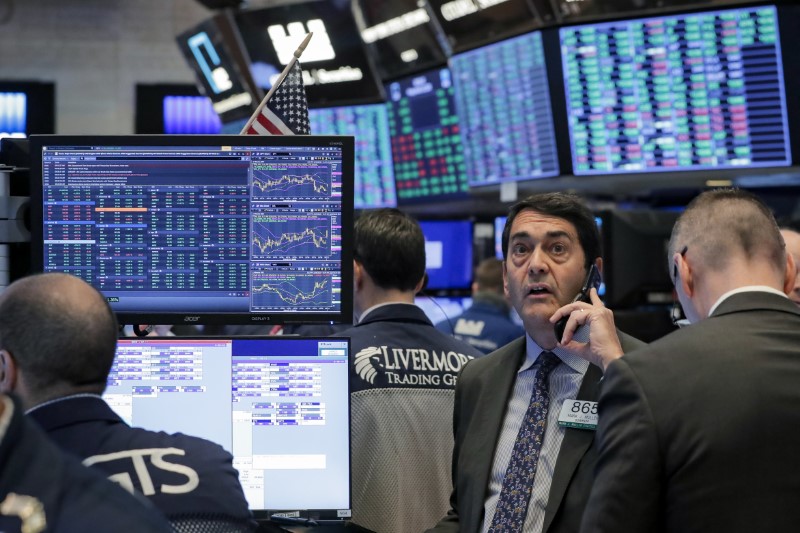By Caroline Valetkevitch
NEW YORK (Reuters) - Wall Street wrapped up its worst week since October 2008, with the Dow Jones Industrial Average and S&P 500 sliding more than 4% on Friday as tough restrictions imposed by New York and California to try to limit the spread of the coronavirus fueled worries about damage to the U.S. economy.
New York Governor Andrew Cuomo early on Friday ordered all non-essential workers to stay home. It followed on the heels of California's statewide "stay at home" order issued late Thursday.
The moves by two of the most populous U.S. states affects some 40 million people. Also, federal authorities this week moved to close the borders with Canada and Mexico, with more than 12,000 cases having been confirmed in the United States as of Friday.
"The equity markets are still trying to get a handle on how bad the economy is going to be, and I think news of entire states being closed probably qualifies as incrementally negative," said Willie Delwiche, investment strategist at Robert W. Baird in Milwaukee.
It affects "a lot of economic activity and a lot of businesses," Delwiche said.
In early trade, the market briefly attempted to build on Thursday's gains as global policymakers turned on the taps to prop up financial markets reeling from weeks of heavy selling that ended Wall Street's record 11-year bull run.
Coronavirus fears have wiped off almost 32%, or roughly $9 trillion, from the value of the benchmark S&P index since its record closing high on Feb. 19.
The Dow Jones Industrial Average (DJI) fell 913.21 points, or 4.55%, to 19,173.98, the S&P 500 (SPX) lost 104.47 points, or 4.34%, to 2,304.92 and the Nasdaq Composite (IXIC) dropped 271.06 points, or 3.79%, to 6,879.52.
Friday's drop left the Dow down 3% from when President Trump took office in January 2017.
All three major indexes registered their biggest weekly declines since October 2008, although the Cboe Volatility index (VIX) - Wall Street's fear gauge - ended the day down at 66.04, in what some investors saw as a sign that selling may subside.
Investors are now counting on further stimulus over the next few days, as the U.S. Senate mulls a $1 trillion package that would include direct financial help for Americans.
"The bottom line here is the market is clearly actively anticipating the fiscal stimulus plan. It's almost like we're going to continue to be in these volatile swings until we get a little more clarity on how large that plan is," said Ryan Detrick, senior market strategist at LPL Financial in Charlotte, North Carolina.
A Reuters poll of economists suggested the global economy was already in recession, while analysts at U.S. stock market index operator S&P Global said volatility across geographies and asset classes was at record highs.
"Quadruple witching" added to choppy trading on Friday, with investors unwinding positions in futures and options contracts before their expiration.
AT&T Inc (N:T) tumbled 8.7% as the wireless carrier said the outbreak might have a material impact on financial results and canceled a $4 billion share repurchase agreement.
The airlines sector <.SPCOMAIR> rose 2.4% after losing more than half its value since late February.
S&P 500 utilities (SPLRCU) fell 8.2% on the day, leading sector declines.
Declining issues outnumbered advancing ones on the NYSE by a 1.27-to-1 ratio; on Nasdaq, a 1.55-to-1 ratio favored decliners.
The S&P 500 posted no new 52-week highs and 94 new lows; the Nasdaq Composite recorded 5 new highs and 257 new lows.

Volume on U.S. exchanges was 18.56 billion shares, compared to the 15.5 billion average for the full session over the last 20 trading days.
